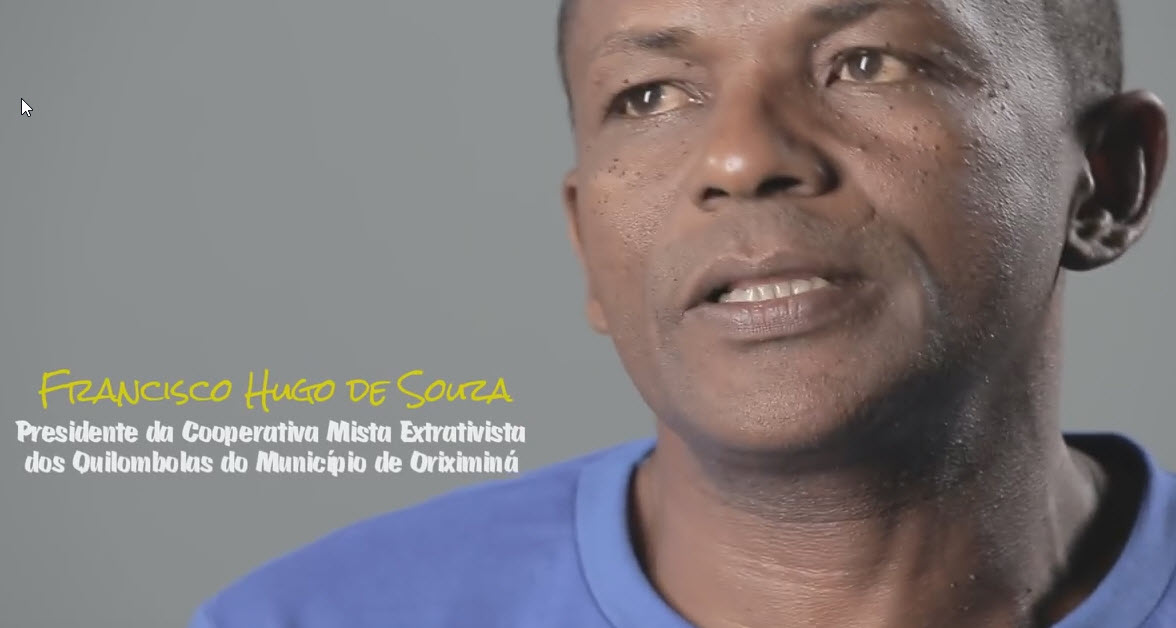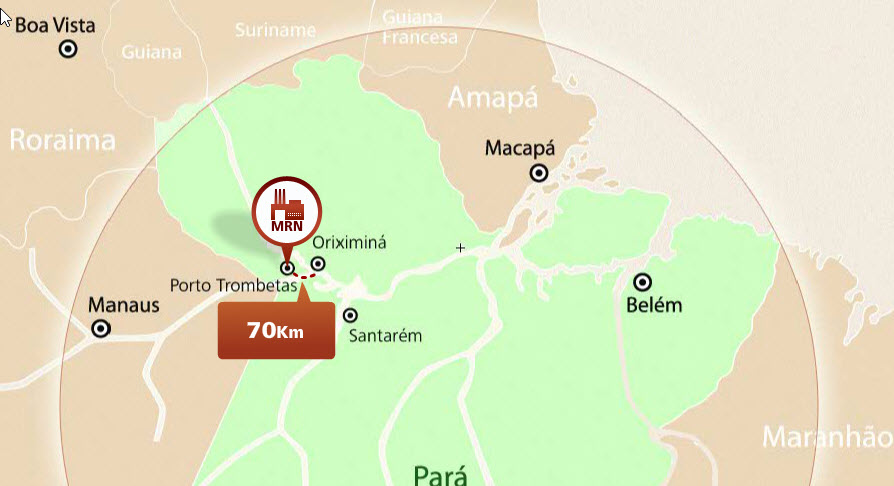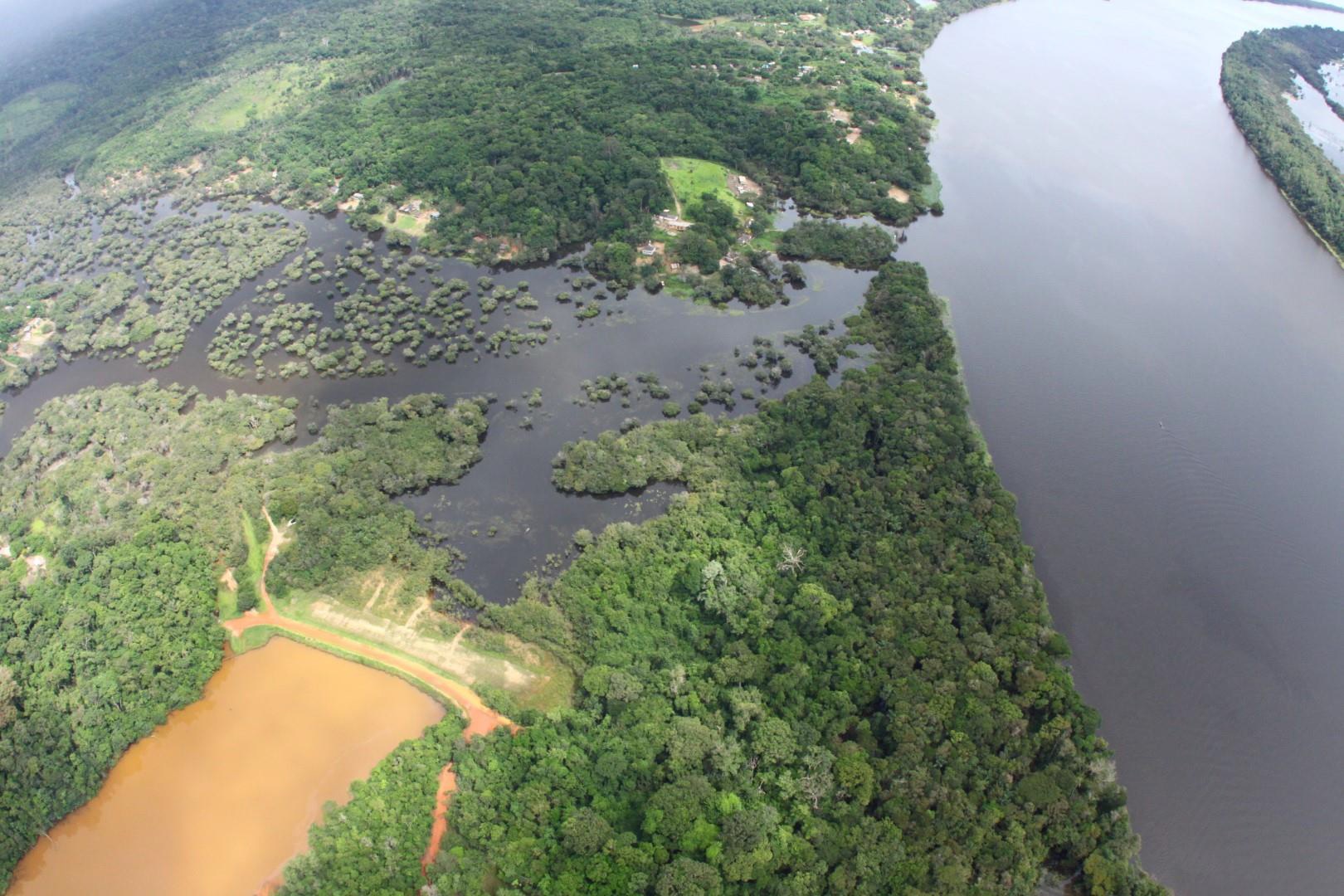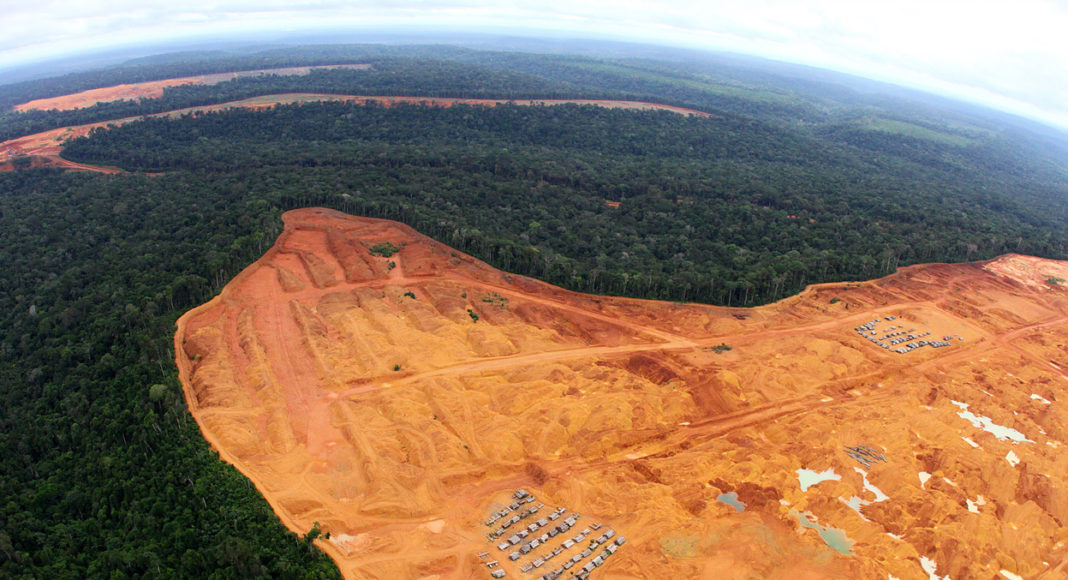1. Land: no title, no respect
The quilombolas, former slaves who live in the municipality of Oriximiná, in the state of Pará, in the North region of Brazil, first escaped from farms and hid behind wild waterfalls.That was about two hundred years ago. Then, in the 20th century, they ended up falling into the hands of the “bosses” responsible for farming Brazil nuts, who again subjected them to bondage. Just when they thought they would have a more peaceful life, the 1964 civil-military dictatorship started and, with it, the intensive exploitation of mineral resources. Quilombola, in Brazil, is the name for the remnants of communities formed by those who resisted slavery.In drinks cans or biscuit packets; in the kitchen, the cutlery drawer or the saucepan; on the train that took you to work or the car that brought you home again. Somewhere, perhaps in many places, you have used aluminum throughout the day. And there is a reasonable chance that this aluminum was produced from the ore extracted from a patch of paradise in the middle of the Brazilian Amazon. If that is the case, there is an even greater chance, we could say 100%, that behind that aluminum lies a history of violations of the social and environmental rights of populations that have had to flee from slavery to survive.
Constitutional right
These people´s right to the ownership of the lands they inhabit was recognized by the 1988 Constitution, promulgated after the end of the dictatorship. It should have spelled the end of a long history of persecution and invisibility for the 37 communities of Oriximiná in this situation, estimated to total 10,000 people. Video: Campanha Índios & Quilombolas de Oriximiná (PA) Comissão Pro Indio de São Paulo
The “anything”, in the case of Oriximiná’s quilombola lands, has a name: bauxite extraction. The struggle of the blacks in the region is taken as an example. It was there, in 1995, that an area of quilombola land became the first in the country to receive official title.The difference is a question of respect. Areas that have land titles have the respect of the government. For example, if there is a proposal to do something in a titled area, it first has to be discussed with the association. In the case of untitled areas, the government allows anything to be done.
Enter the Company
Today, there are four recognized territories, covering a total of 379,709 thousand hectares of the Amazonian forest, more than the area of Luxembourg. There are another four missing from the list: the problem is that there is somebody else interested in those places.

An unequal dispute
Calculations by the Comissão Pró-Índio (CPI) – an organization that has been working in the region since the 1980s to guarantee the territorial, cultural and political rights of quilombolas – show that the overlap between the lands sought by the communities and those requested by the mining company amounts to 33 thousand hectares of forest, about 10% of the territory. According to the anthropologist Lúcia Andrade, coordinator of CPI, which is a partner of British organization Christian Aid in action in Oriximiná, what is seen in the region is an unequal territorial dispute, the result of irreconcilable activities.It is a dispute that occurs to the extent that the activities are irreconcilable: the extraction of the ore generates large environmental impacts and implies the complete destruction of the forests that guarantee the subsistence of the quilombolas — Lúcia Andrade.If the lands were already titled, the quilombolas could more consistently defend the right to decide on the authorization of the mineral exploration besides putting stronger pressure on the federal government which owns the subsoil and has the final word. And, where approval is given, they would earn royalty and indemnity payments.
The role of government
In this way, the authorities have several responsibilities in the dispute: to title the communities’ lands, to conduct the environmental licensing of the mining company and to promote a free, prior and informed consultation of the quilombolas regarding the licenses. However, this role has not been adequately performed.Our assessment is that the federal government has not been effective in securing and promoting the rights of Oriximiná’s quilombolas in this dispute — Lúcia AndradeThis situation leaves the field open for expansion of the MRN extraction area. And, while the quilombolas have suffered from the tardiness of the government, time seems to pass much more quickly when the decisions are to be made on demands of the mining company.

Once this expansion is authorized, the quilombolas will no longer have access to a significant part of their territory. For years, this portion of land will be reserved for the exclusive use of a company that, at the end of the extraction period, will return to them an area substantially degraded. It does not seem to us that the reforestation initiatives undertaken by the company are sufficient to restore the forest and all biodiversity — Lúcia AndradeIn response, the quilombolas sent the government a letter demanding that the expansion of the mining company should be suspended until the official conclusion of the land titling. The communities argue that without this legal certainty the environmental licensing process cannot proceed. The text, signed by Associação Mãe Domingas, Associação das Comunidades Remanescentes de Quilombos do Município de Oriximiná and the Cooperativa Mista Extrativista dos Quilombolas do Município de Oriximiná, also demands that INCRA speed up the completion of the regularization of titles process started more than 10 years ago.
João Peres is a journalist graduated at the University of São Paulo. He is the author of ‘Corumbiara, caso enterrado’, a book about the massacre that occurred in 1995 in the Brazilian Amazon and was nominated finalist of Prêmio Jabuti, the most relevant literature prize in the country. He is also a former editor of web pages and radios and a reporter specialized on human rights themes. He has covered elections and crisis in Brazil, Argentina, Venezuela, Colombia and Bolivia. Moriti Neto is a journalist and an academic professor. He has been editor and reporter in relevant magazines and web pages, being awarded important prizes for works that have exposed human rights violations and abuse of economic power. As a professor, he coordinated a lab journal uncovering problems related to potable water management in São Paulo, receiving wide appraisal.


